Are you a woman thriving on a plant-based diet but constantly worried about missing critical nutrients? You’re not alone, and your concerns are completely valid. Recent research reveals that 44% of vegan women are deficient in vitamin B12, and menstruating women need 18 mg of iron daily – nearly impossible to achieve through plant foods alone [1]. The good news? The right vegan multivitamin can completely transform your health, allowing you to maintain your ethical lifestyle while ensuring your body gets everything it needs to thrive.
This isn’t just about finding any supplement labeled “vegan” – it’s about understanding your unique nutritional needs as a woman, navigating the complex world of plant-based nutrition, and choosing a scientifically-formulated multivitamin that actually works. By the end of this guide, you’ll have the knowledge and confidence to select the perfect vegan multivitamin for your individual needs and take control of your health journey.
The Hidden Crisis: Why Vegan Women Face Unique Nutritional Challenges
Your plant-based diet is incredibly healthy, but it has gaps
You chose veganism for excellent reasons – environmental sustainability, animal welfare, and health benefits that are scientifically proven. However, your female body faces monthly challenges that most nutrition advice completely ignores. Every time you menstruate, you lose 0.5-1 mg of iron daily – iron that’s already challenging to absorb from plant sources [2].

The statistics are sobering but solvable:
- 44% of vegan women are B12 deficient compared to 32% of vegetarians [1]
- Vegans consume only 0.24-0.49 μg of B12 daily versus the required 2.4 μg [3]
- One-third of vegans show severe iodine deficiency below WHO safety thresholds [4]
- Most vegan women consume less than 750 mg of calcium daily versus the recommended 1,000 mg [5]
These aren’t just numbers on a lab report – they represent real symptoms affecting your daily life. B12 deficiency can cause irreversible nerve damage and crushing fatigue. Iron deficiency leaves you exhausted and foggy. Inadequate calcium sets the stage for osteoporosis decades later.
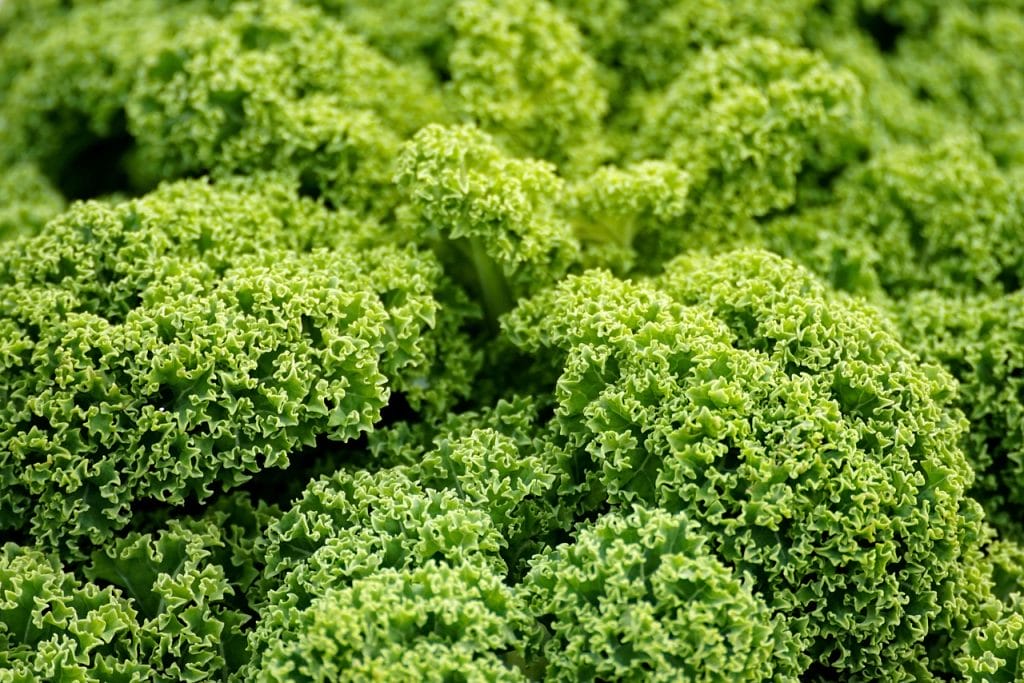
The absorption challenge that changes everything
Here’s what makes vegan nutrition particularly complex: your body absorbs nutrients differently from plant sources. While heme iron from meat absorbs at 15-35% efficiency, non-heme iron from plants manages only 2-20% [6]. This means vegan women need 1.8 times more iron than standard recommendations.
The challenge compounds when you consider:
- Phytates in grains and legumes that bind minerals like iron and zinc

- Oxalates in spinach and other greens that block calcium absorption
- Only 5-8% of plant-based ALA omega-3 converts to the essential EPA and DHA your brain needs [7]
Why you’re experiencing these symptoms
If you’re dealing with persistent fatigue, brain fog, brittle nails, or frequent infections, nutrient deficiencies might be the hidden culprit. These symptoms often develop gradually, making them easy to dismiss as stress or normal aging. But they’re actually your body’s way of signaling that despite your healthy diet, something important is missing.
Why Regular Multivitamins Fail Plant-Based Women
The synthetic problem
Most conventional multivitamins are designed for omnivorous diets. They assume you’re getting heme iron from meat, B12 from animal products, and omega-3s from fish. When you rely on these standard formulations as a vegan woman, you’re essentially using the wrong tool for the job.
Research reveals dramatic differences in how your body handles different nutrient forms:
- Natural vitamin E is absorbed twice as efficiently as synthetic versions [8]
- Methylated B vitamins bypass genetic conversion problems that affect 30-40% of people with MTHFR mutations [9]
- Plant-based whole food vitamins provide cofactors that enhance absorption beyond isolated synthetic compounds [10]
The dosage disconnect
Standard multivitamins provide RDA amounts designed for average populations eating varied diets. But you’re not average – you’re a woman on a plant-based diet with fundamentally different absorption challenges. The Academy of Nutrition and Dietetics explicitly states that vegans need specialized nutritional strategies [11], yet most supplements completely ignore these evidence-based requirements.
Your Complete Solution: The Ultimate Guide to Vegan Multivitamins for Women
Non-negotiable nutrients your multivitamin must contain
Vitamin B12: Your absolute foundation Why you need it: B12 deficiency can cause irreversible nerve damage, severe fatigue, and cognitive decline. Plant foods contain virtually no bioavailable B12. What to look for: 25-100 mcg daily in methylcobalamin or cyanocobalamin form Pro tip: Choose methylcobalamin if you have MTHFR genetic variants affecting B vitamin conversion
Iron: Addressing your monthly losses
Why you need it: If you menstruate, you lose significant iron monthly. Plant-based iron is poorly absorbed compared to heme iron. What to look for: 18 mg daily if menstruating (8 mg if post-menopausal) in ferrous bisglycinate chelate form Pro tip: Pair with vitamin C and take away from calcium for maximum absorption

Algae-based Omega-3s: The missing essential fats Why you need it: Your brain is 60% fat and needs EPA/DHA for optimal function. Plant ALA barely converts to these crucial forms. What to look for: 250-500 mg combined EPA/DHA daily from sustainable algae sources Pro tip: Look for brands like Future Kind offering 405+ mg of vegan EPA/DHA
Vitamin D3: Your sunshine vitamin from plants Why you need it: Essential for immune function, bone health, and mood regulation. Most people are deficient, especially in winter. What to look for: 600-1,000 IU daily from lichen-derived D3 (more effective than D2) Pro tip: Take with fat-containing meals for better absorption
Folate: Supporting cellular health and pregnancy Why you need it: Critical for DNA synthesis, red blood cell formation, and preventing birth defects. What to look for: 400 mcg daily minimum (600 mcg if pregnant/planning pregnancy) Pro tip: Choose methylfolate over folic acid if you have MTHFR variants
How to maximize your supplement investment
Smart timing strategies:
- Take iron on empty stomach with vitamin C for best absorption
- Consume fat-soluble vitamins (D, K) with meals containing healthy fats
- Separate calcium and iron by 2+ hours to prevent absorption interference
- Split large doses throughout the day rather than taking everything at once
Enhance absorption naturally:
- Soak grains and legumes to reduce phytates that block minerals
- Combine iron-rich foods with vitamin C like bell peppers or citrus
- Avoid coffee/tea within 2 hours of iron supplements
- Support gut health with probiotics for optimal nutrient absorption
Special Considerations for Your Life Stage
Reproductive years (18-45): Supporting your cycle
Your iron needs are at their highest during these years. With regular menstruation, you need 18 mg of iron daily – nearly impossible to achieve through plant foods alone without careful planning.
Priority nutrients:
- Iron: 18 mg daily in chelated form
- Folate: 400 mcg daily (increase to 600 mcg when trying to conceive)
- B12: 25-100 mcg daily for energy and nervous system health
- Omega-3s: 250+ mg EPA/DHA for hormonal balance and brain health
Pregnancy and breastfeeding: Nourishing two lives

Your nutrient needs increase dramatically during pregnancy:
- Iron: 27 mg daily (50% increase from pre-pregnancy needs)
- Folate: 600 mcg daily to prevent neural tube defects
- B12: 2.6 mcg daily for proper fetal brain development
- DHA: 300+ mg daily for fetal brain and eye development [13]
Choose prenatal vitamins specifically formulated for vegan diets rather than trying to modify regular multivitamins. Many standard prenatals lack adequate B12 or contain animal-derived vitamin D.
Menopause and beyond (45+): Protecting your future health
After menopause, your nutritional priorities shift toward bone health and cardiovascular protection:
- Calcium: Needs may increase to 1,200 mg daily
- Vitamin D: Becomes even more critical for calcium absorption and fracture prevention
- Vitamin K2: Helps direct calcium to bones rather than arteries
- Iron: Needs decrease to 8 mg daily after menstruation stops
Look for menopause-specific formulations that address declining estrogen’s effects on nutrient absorption and bone density.
Glam Dust
Radiant Skin – Luscious Hair – Pristine Nails
Vitamin Shots
The Ultimate Brain And Body Supplement
Vitamin Sprinkles
Fuel Your Brain – Nourish Your Body – With One Delicious Sprinkle
Avoiding Common Mistakes and Dangerous Interactions
Supplements that enhance each other
Strategic combinations boost your results:
- Vitamin D + Calcium: D3 dramatically improves calcium absorption
- Vitamin C + Iron: Can triple non-heme iron absorption from plant sources
- Vitamin K2 + D3: Work together to optimize bone health and prevent arterial calcification
Timing conflicts that undermine your efforts
Some nutrients compete for absorption:
- Calcium reduces iron absorption by 50-60% when taken together [6]
- High-dose zinc interferes with iron absorption
- Coffee and tea tannins block iron absorption for up to 2 hours
Red flags that require medical attention
Consult healthcare providers if you experience
- Persistent fatigue despite 6-8 weeks of supplementation

- Unusual food cravings (especially ice, starch, or cornstarch)
- Numbness or tingling in hands and feet
- Rapid hair loss or brittle, spoon-shaped nails
- Difficulty concentrating or memory issues
Annual blood testing for B12, vitamin D, ferritin, and complete blood count helps track your nutritional status and adjust supplementation accordingly.
The Science Behind Plant-Based vs. Synthetic Nutrients options
Why absorption matters more than dosage
Recent research reveals that natural vitamin sources often provide superior bioavailability. A landmark study found that natural vitamin E was retained in the body twice as long as synthetic vitamin E, despite identical chemical structures [8]. This occurs because natural vitamins come with cofactors and enzymes that enhance absorption and utilization.
However, synthetic doesn’t always mean inferior. For nutrients like B12, where reliable plant sources don’t exist, high-quality synthetic forms are not just acceptable – they’re essential. The key is choosing supplements that use the most bioavailable forms of each nutrient.
The whole food advantage
Whole food-based vitamins provide nutrients in their natural matrix with complementary compounds that enhance absorption. For example, natural vitamin C comes with bioflavonoids that improve its utilization, while isolated ascorbic acid lacks these beneficial cofactors.
The practical takeaway: Choose whole food-based vitamins when available, but don’t avoid synthetic forms of critical nutrients like B12 where plant sources are inadequate.
Cost-Effectiveness: Getting Maximum Value
Smart shopping strategies
Subscription services typically offer 15-25% discounts on premium brands. Annual subscriptions provide even greater savings while ensuring consistent supplementation.
Compare cost per serving, not bottle price. A $160 bottle lasting 2 months provides better value than a $90 bottle lasting 1 month.
Budget-friendly approaches without compromising quality
Layer your supplementation strategically:
- Start with a basic vegan multivitamin for foundation nutrients
- Add targeted supplements for your specific needs (B12, algae omega-3)
- Consider whole food sources for some nutrients (nutritional yeast for B vitamins)

Ultimate Vegan Multivitamin Guide for Plant-Based Nutrition and Immunity
A multivitamin designed for a plant-based eater must deliver a complete blend of essential vitamins and minerals, especially when following a plant-based diet. The best choice is a vegan multivitamin for women that is made from organic whole food, includes vegan sources, and supports heart health, immunity, and daily wellness. Vegan multivitamins contain important nutrients like magnesium, omega 3, and vegan D3, which are commonly missing in food sources for vegans. These multivitamins for vegans are often crafted as plant-based supplements using organic ingredients, including organic fruit and plant compounds. Many multivitamins available on the market are now USDA organic, vegan friendly, and contain vegan capsules free from gluten, making them a trusted food supplement.
A high-quality daily multivitamin or women’s multivitamin ensures you’re getting every vitamin and mineral needed to prevent vitamin D deficiency and support immunity. Choose the best vegan multivitamin with vegan collagen, plant-based protein, and vitamin and mineral combinations that meet the needs of women. Vegan multivitamins, especially multivitamins on the market today, come highly recommended in customer reviews and are often developed as premium plant-based solutions. Whether you’re looking for a whole food multivitamin, a vegan supplement, or multivitamin supplements, these plant-based sources from plant-based algae and vegan food offer multivitamin that provides true nutrition.
Vegan multivitamins may also support immunity, magnesium balance, and gluten sensitivity, helping you build a strong foundation with every vitamin and mineral, vitamin and mineral, vitamin and mineral, vitamin and mineral, vitamin and mineral you need. Even veg 1 baby and toddler options exist, proving that plant-based foods can support every age with the right multivitamins contain.
Quality Control: How to Identify Trustworthy Brands
Essential certifications to look for
Third-party testing ensures what’s on the label is in the bottle:
- USP Verification: Confirms purity, potency, and dissolution
- NSF International: Tests for contaminants and verifies label claims
- Non-GMO Project Verified: Ensures no genetically modified ingredients
- USDA Organic: Guarantees organic sourcing and processing
Red flags that indicate poor quality

Avoid supplements that:
- Make unrealistic health claims or promise miracle cures
- Lack third-party testing or certification information
- Use proprietary blends hiding individual ingredient amounts
- Have been subject to FDA warning letters
- Offer prices significantly below market average
Glam Dust
Radiant Skin – Luscious Hair – Pristine Nails
Vitamin Shots
The Ultimate Brain And Body Supplement
Vitamin Sprinkles
Fuel Your Brain – Nourish Your Body – With One Delicious Sprinkle
Your Action Plan: Implementing Your Vegan Multivitamin Strategy
Step 1: Assess your current status
Get baseline blood testing for:
- Vitamin B12 (serum and methylmalonic acid)
- 25-hydroxy vitamin D
- Ferritin (iron storage)
- Complete blood count
- Folate levels
Step 2: Optimize your timing and absorption
Create a supplement schedule:
- Morning: Multivitamin with breakfast (contains fat for D3/K2 absorption)
- Afternoon: Iron supplement on empty stomach with vitamin C
- Evening: Calcium if needed, separated from iron and multivitamin
Step 3: Monitor and adjust
Track your progress through:
- Energy levels and mood changes
- Sleep quality improvements
- Hair, skin, and nail health
- Follow-up blood testing after 3-6 months
Conclusion: Take Back Control—Naturally
You don’t have to live at the mercy of anxiety. From the calming power of chamomile and ashwagandha to the grounding effect of deep breathing and magnesium-rich foods, nature offers powerful tools to restore your inner balance. These science-backed remedies aren’t just trends—they’re time-tested methods proven to help your mind and body find calm. Begin with one small change today, and watch how it gently transforms your mood, your mindset, and your life. Healing is possible—and it starts with you.
Ask ChatGPT
Frequently Asked Questions (FAQ)
Do vegan women really need multivitamins?
Yes, even well-planned vegan diets struggle to provide adequate amounts of certain nutrients. Research published in Clinical Nutrition found that 44% of vegans are B12 deficient, and most consume inadequate amounts of EPA/DHA omega-3s, vitamin D, and iodine [1]. Multivitamins serve as nutritional insurance, filling gaps that exist due to absorption challenges rather than dietary inadequacy.
What nutrients are vegan women most likely to be deficient in?
The most common deficiencies among vegan women include: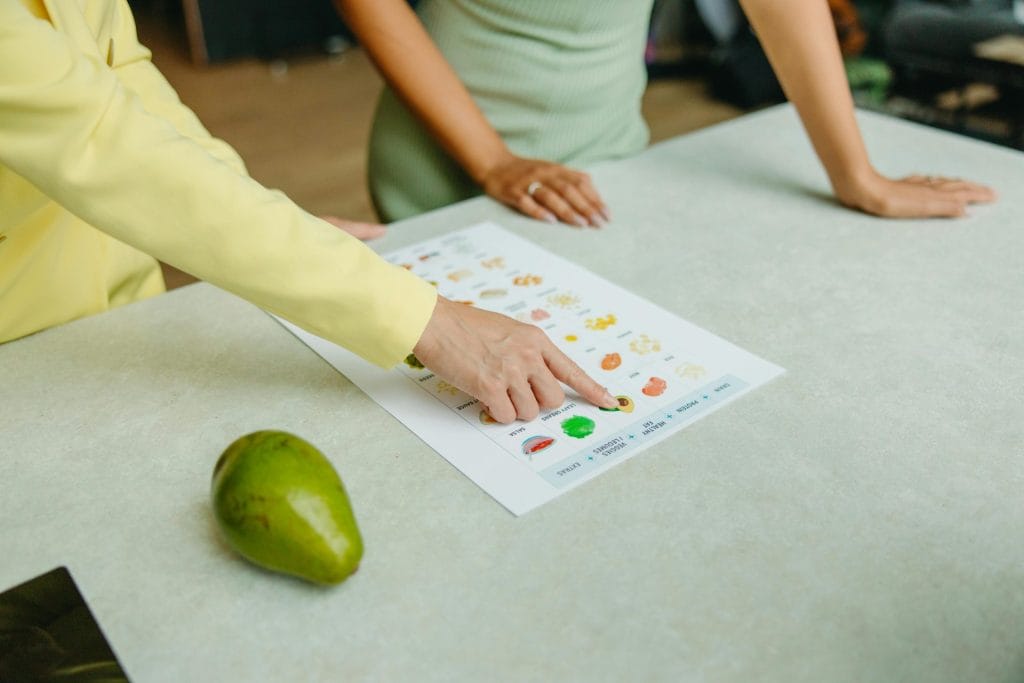
- Vitamin B12 (44% of vegans are deficient)
- Iron (especially menstruating women needing 18mg daily)
- Omega-3 fatty acids EPA and DHA (plant ALA converts poorly)
- Vitamin D (limited food sources, seasonal deficiency)
- Iodine (one-third of vegans show severe deficiency)
- Calcium (if not consuming fortified foods)
- Zinc (absorption blocked by phytates in plant foods)
What’s the difference between vegan and regular multivitamins?
Vegan multivitamins differ in several key ways:
- Source: All ingredients derived from plants or synthetic sources (no animal products)
- Dosage: Higher amounts of nutrients commonly deficient in plant-based diets
- Forms: Often use more bioavailable forms like methylcobalamin B12 and lichen-derived D3
- Focus: Address specific absorption challenges faced by vegans
- Exclusions: No gelatin capsules, animal-derived D3, or other animal ingredients
Are expensive vegan multivitamins worth the cost?
Quality varies significantly in the supplement industry. Premium brands typically offer:
- Third-party testing for purity and potency
- Bioavailable nutrient forms (chelated minerals, methylated B vitamins)
- Clinical research supporting their formulations
- Better manufacturing standards and quality control
Calculate cost per nutrient and consider absorption efficiency. A $90/month premium supplement with superior bioavailability may provide better value than a $60/month alternative with poor absorption.

Can I get all nutrients from food alone on a vegan diet?
While theoretically possible, it’s practically challenging. Even nutrition professionals struggle to achieve optimal levels of all nutrients from food alone. A systematic review of 141 studies found that vegans consistently showed lower levels of B12, vitamin D, iron, zinc, calcium, and iodine despite eating nutrient-dense diets [1]. Your energy is better invested in enjoying a varied plant-based diet while using targeted supplementation to fill absorption gaps.
How long before I see benefits from vegan multivitamins?
Timeline varies by nutrient and deficiency severity:
- Energy improvements: 2-8 weeks as iron and B12 levels normalize
- Hair and nail health: 2-3 months for visible improvements
- Immune function: 4-6 weeks for enhanced resistance to illness
- Bone health: 6-12 months for measurable density improvements
- Cognitive function: 4-8 weeks for improved focus and memory
Clinical trials show measurable improvements in vitamin D and omega-3 levels within 12 weeks of consistent supplementation [12].
Should I take my vegan multivitamin with food or empty stomach?
Take with food to enhance absorption and reduce stomach upset. Fat-soluble vitamins (A, D, E, K) specifically require dietary fat for optimal absorption. Iron is an exception – it’s best absorbed on an empty stomach but can be taken with food if it causes nausea. Never take iron with calcium, coffee, or tea as these significantly reduce absorption.
Are gummy vegan multivitamins as effective as capsules?
Gummy vitamins have significant limitations:
- Cannot contain iron (causes unpleasant metallic taste)
- Provide lower nutrient doses due to space constraints
- May contain added sugars and artificial ingredients
- Less stable than capsules, leading to nutrient degradation
Capsules and tablets allow for higher nutrient concentrations and can include minerals that don’t work well in gummy form. For comprehensive nutrition, capsules or tablets are generally more effective.
Can I take too much of certain vitamins?
Fat-soluble vitamins (A, D, E, K) can accumulate and cause toxicity at very high doses over time. Water-soluble vitamins (B, C) are generally safer as excess amounts are excreted in urine. Follow recommended dosages and avoid mega-dose supplements unless supervised by healthcare providers. Third-party tested supplements reduce risk of excessive amounts.
What should I do if I’m pregnant or planning to become pregnant?
Switch to a vegan prenatal vitamin immediately when planning pregnancy or as soon as you discover you’re pregnant. Key pregnancy nutrients include:
- Folate: 600 mcg daily to prevent neural tube defects
- Iron: 27 mg daily for increased blood volume
- B12: 2.6 mcg daily for fetal brain development
- DHA: 300+ mg daily for fetal brain and eye development
Consult with a healthcare provider familiar with vegan nutrition for personalized guidance.
How do I know if my vegan multivitamin is working?
Signs your multivitamin is effective:
- Increased energy levels within 2-8 weeks
- Improved mood and mental clarity
- Better sleep quality
- Stronger nails and healthier hair growth
- Fewer infections or illnesses
- Blood test improvements after 3-6 months
Get follow-up blood testing after 3-6 months to objectively measure improvements in B12, vitamin D, ferritin, and other key markers.
Can children and teens take adult vegan multivitamins?

No, children and teens need age-specific formulations with different nutrient ratios and dosages. Adult multivitamins may contain too much or too little of certain nutrients for developing bodies. Look for vegan multivitamins specifically formulated for children or teens, and consult with a pediatrician familiar with plant-based nutrition.
Do I need to take breaks from my vegan multivitamin?
Consistent daily supplementation is generally recommended for nutrients like B12, iron, and vitamin D where deficiencies develop slowly. Taking breaks can allow deficiencies to return, especially for B12 which is stored in the liver for only 3-5 years. Follow the manufacturer’s recommendations and consult healthcare providers if you have concerns about long-term supplementation.
What’s the best time of day to take vegan multivitamins?
Morning with breakfast is typically ideal because:
- Fat-soluble vitamins absorb better with the fats in your meal
- B vitamins provide energy that’s helpful during the day rather than evening
- Establishes a consistent routine for better compliance
- Reduces risk of stomach upset compared to taking on empty stomach
Avoid taking with coffee or tea which can interfere with iron absorption.
Are there any medications that interact with vegan multivitamins?
Yes, several medications can interact with multivitamin ingredients:
- Blood thinners (warfarin): Vitamin K can affect medication effectiveness
- Thyroid medications: Iron and calcium can reduce absorption
- Antibiotics: Iron, zinc, and calcium can interfere with antibiotic absorption
- Proton pump inhibitors: Can reduce B12 and iron absorption
Always inform your healthcare provider about all supplements you’re taking and space medications and supplements by 2-4 hours when interactions are possible.
Glam Dust
Radiant Skin – Luscious Hair – Pristine Nails
Vitamin Shots
The Ultimate Brain And Body Supplement
Vitamin Sprinkles
Fuel Your Brain – Nourish Your Body – With One Delicious Sprinkle

Your Path to Optimal Health Starts Today
You now have the complete roadmap to choosing and using vegan multivitamins effectively. The science is clear: strategic supplementation isn’t about admitting dietary failure – it’s about optimizing your health while maintaining your ethical values.
Your immediate action steps:
- Get baseline blood testing to understand your current nutritional status
- Choose a high-quality vegan multivitamin that addresses your life stage and specific needs
- Implement strategic timing to maximize absorption and minimize interactions
- Monitor your progress through regular testing and attention to how you feel
Remember: Your health is an investment, not an expense. The cost of quality supplementation is minimal compared to the price of nutritional deficiencies – both in terms of healthcare costs and quality of life.
The perfect vegan multivitamin for you is the one you’ll take consistently while maintaining a varied, delicious plant-based diet. Start today, stay consistent, and trust the process as your body begins receiving the comprehensive nutrition it deserves.
Your journey toward optimal health on a plant-based diet begins with a single decision. Make it count.
References
[1] Bakaloudi, D. R., et al. (2021). Intake and adequacy of the vegan diet: A systematic review of the evidence. Clinical Nutrition, 40(5), 3503-3521.
[2] Pawlak, R., et al. (2013). How prevalent is vitamin B₁₂ deficiency among vegetarians? Nutrition Reviews, 71(2), 110-117.
[3] Schüpbach, R., et al. (2017). Micronutrient status and intake in omnivores, vegetarians and vegans in Switzerland. European Journal of Nutrition, 56(1), 283-293.
[4] Eveleigh, E. R., et al. (2020). Vegans, vegetarians, and omnivores: How does dietary choice influence iodine intake? A systematic review. Nutrients, 12(6), 1606.
[5] Craig, W. J., & Mangels, A. R. (2009). Position of the American Dietetic Association: vegetarian diets. Journal of the American Dietetic Association, 109(7), 1266-1282.
[6] Lynch, S. R. (2011). Why nutritional iron deficiency persists as a worldwide problem. Journal of Nutrition, 141(4), 763S-768S.
[7] Plourde, M., & Cunnane, S. C. (2007). Extremely limited synthesis of long chain polyunsaturates in adults: implications for their dietary essentiality and use as supplements. Applied Physiology, Nutrition, and Metabolism, 32(4), 619-634.
[8] Burton, G. W., et al. (1998). Human plasma and tissue alpha-tocopherol concentrations in response to supplementation with deuterated natural and synthetic vitamin E. American Journal of Clinical Nutrition, 67(4), 669-684.
[9] Frosst, P., et al. (1995). A candidate genetic risk factor for vascular disease: a common mutation in methylenetetrahydrofolate reductase. Nature Genetics, 10(1), 111-113.
[10] Biesalski, H. K. (2013). Comparative assessment of the toxicology of vitamin A and retinoids in man. Toxicology, 57(2), 117-161.
[11] Melina, V., et al. (2016). Position of the Academy of Nutrition and Dietetics: vegetarian diets. Journal of the Academy of Nutrition and Dietetics, 116(12), 1970-1980.
[12] Future Kind Clinical Trial Results. (2024). Essential for Women 18+ Clinical Study: 12-week randomized, double-blind, placebo-controlled trial. Auburn University.
[13] Institute of Medicine. (2006). Dietary Reference Intakes: The Essential Guide to Nutrient Requirements. National Academies Press.
[14] Gibson, R. S., et al. (2014). A review of phytate, iron, zinc, and calcium concentrations in plant-based complementary foods used in low-income countries. Food and Nutrition Bulletin, 35(1), 104-112.
[15] Hunt, J. R. (2003). Bioavailability of iron, zinc, and other trace minerals from vegetarian diets. American Journal of Clinical Nutrition, 78(3), 633S-639S.


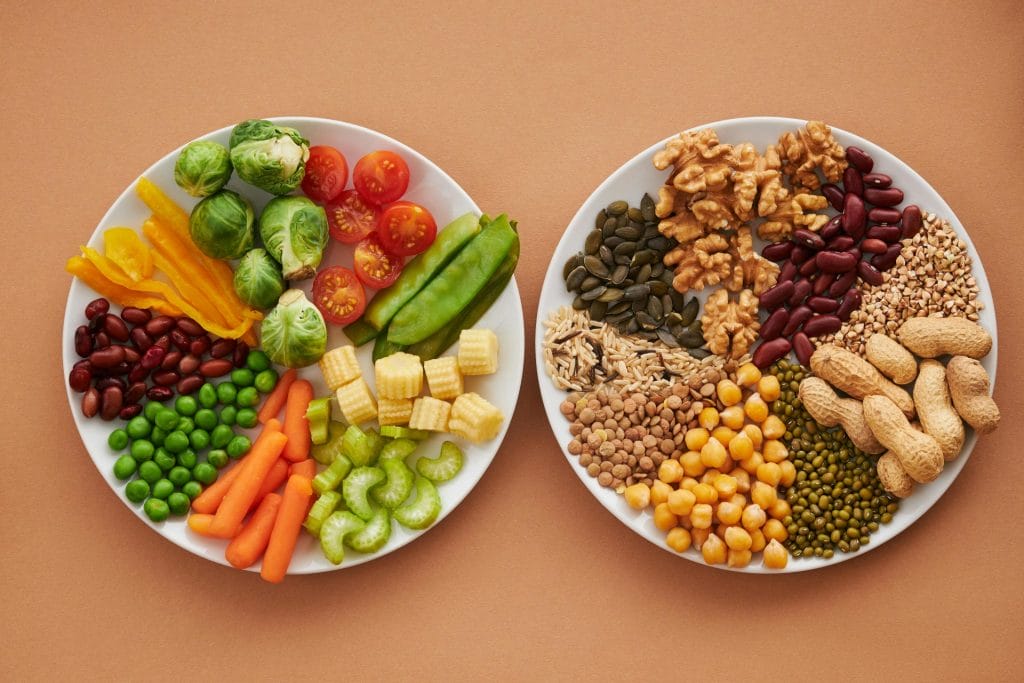


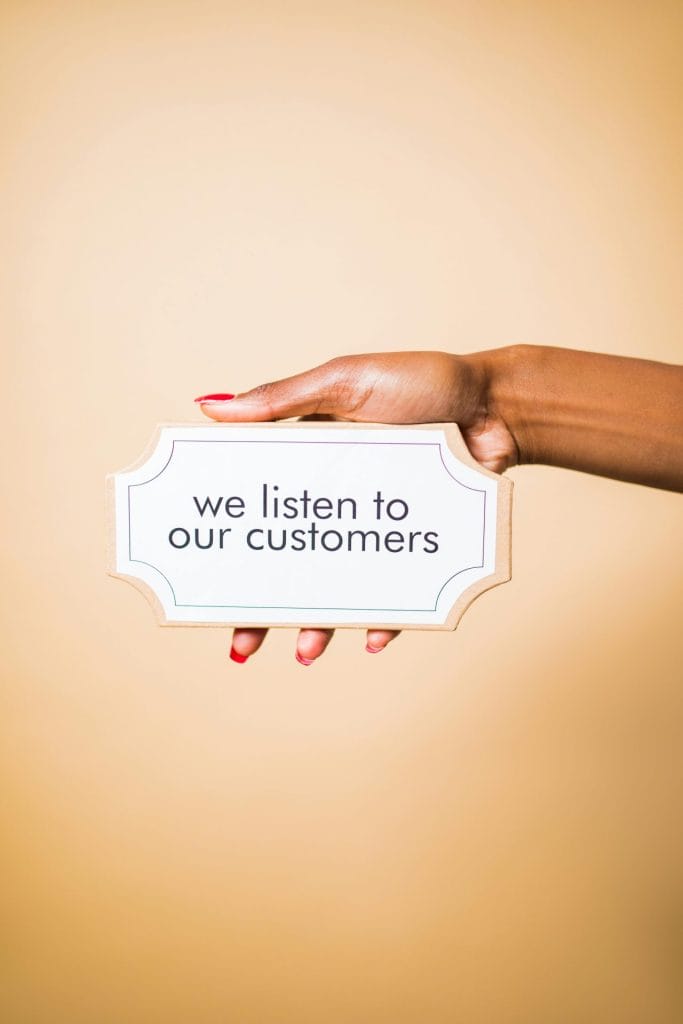
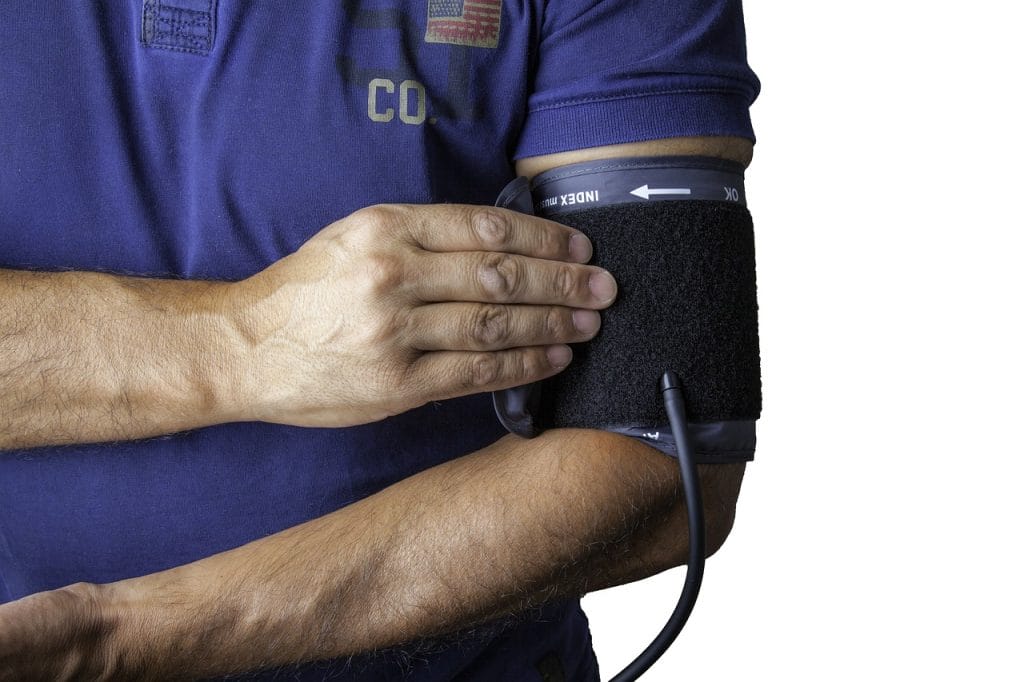
.png)

Hi! I’m at work surfing around your blog from my new iphone!
Just wanted to say I love reading your blog and look forward to all
your posts! Keep up the excellent work!